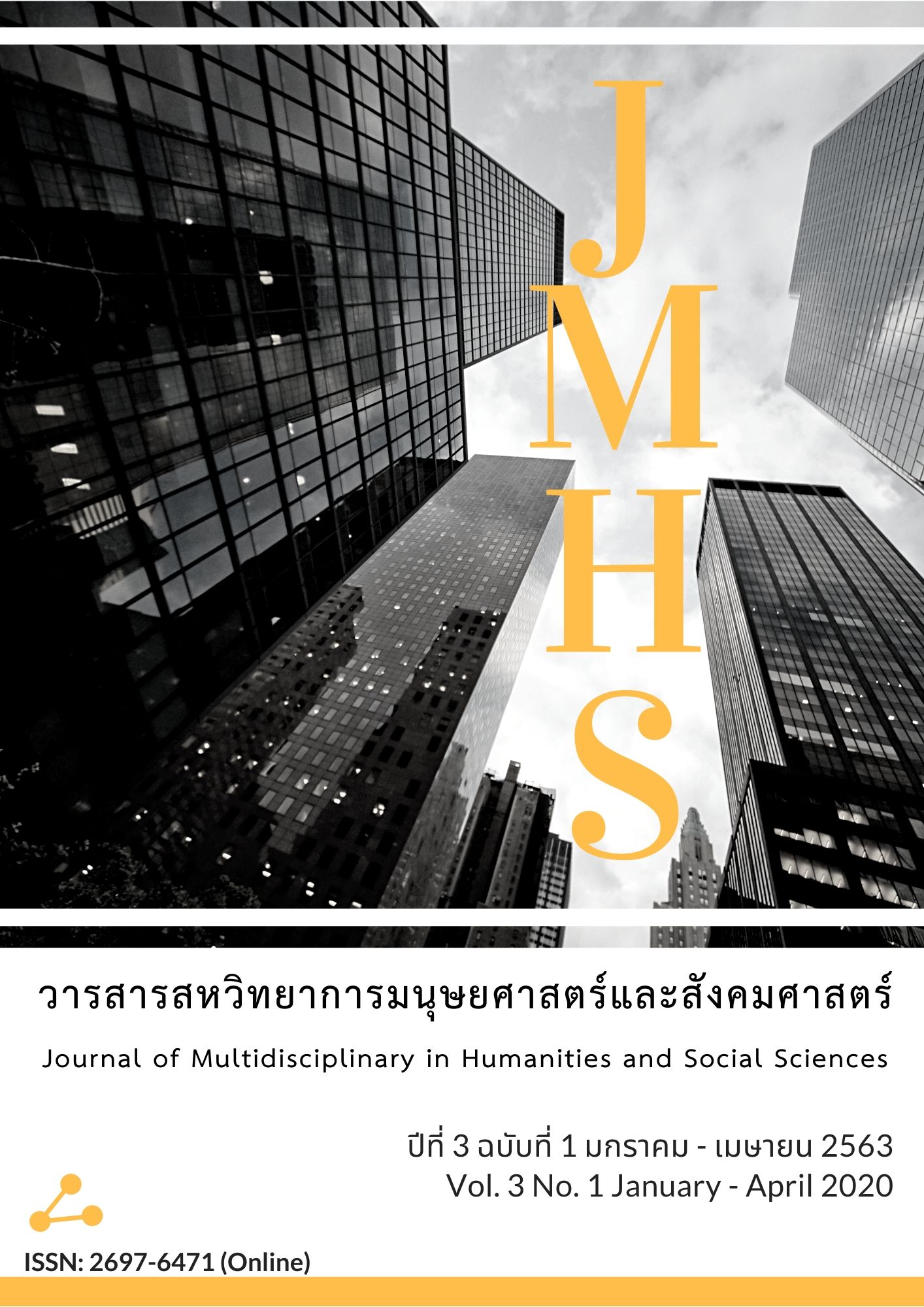Homosexuality: An Analysis Based on Buddhist Ethics Guidelines
Main Article Content
Abstract
Homosexuality refers to homosexuality and homosexuality. A man or a woman with homosexuality is right or wrong. It depends on the context of each society. Really Sex on the human body may be "female" and "male", but "sexual orientation" is a matter. The "mind" is not the "body", so the feeling of "love heterosexual" "homosexual" or "love all the sex" is a matter of psychology. But they will dare "reveal" the true identity or "concealed" it. It depends on the reason for living in accordance with the context of the society. In some societies, homosexuals are recognized as in ancient Greece. The "male love or gay army" was created from the idea that. Soldiers who are homosexual I will fight bravely. To show courage and love to their lovers. By protecting their partners from the enemy on the battlefield. If you consider the religious ethics "Sex "in the Christian and Islamic sections. Has stated that homosexuality is a sin. But in Buddhism is not mentioned so. Determining whether homosexuality is a sin or not. It is not the same as that of the Buddha. Strict interpretation Make homosexuals acceptable or deny them. Based on a social basis. History and religious taboos. The difference in each of them.
Article Details
Views and opinions appearing in the Journal it is the responsibility of the author of the article, and does not constitute the view and responsibility of the editorial team.
References
ชลิดาภรณ์ ส่งสัมพันธ์. (2550). เมื่อผู้หญิงคิดจะมีหนวด: การต่อสู้ความจริง ของเรื่องเพศในสภาผู้แทนราษฎร. กรุงเทพฯ: โครงการจัดพิมพ์คบไฟ.
พระมหาดนัยพัชร์ คมฺภีรปญฺโญ. (2562). อิทธิพลเรื่องบาปในอรรถกถาธรรมบทที่มีต่อสังคมไทย. วารสารศึกษาศาสตร์ มมร., 7(1), 129-144.
สุรพงษ์ โสธนะเสถียร. (2554). การบริหารงานสื่อสารมวลชน. กรุงเทพฯ: ประสิทธิ์ภัณฑ์แอนด์พรินติ้ง.
อมรา พงศาพิชญ์. (2548). เพศสถานะและเพศวิถีในสังคมไทย. กรุงเทพฯ: แอคทีฟพริ้นท์.
ยลดา พงษ์สวัสดิ์. (2555). สิทธิข้ามเพศ : พวกรักร่วมเพศ. (ออนไลน์). http://sd-group2.blogspot.com/2012/12/53242353.html
พิมพ์วัลย์ บุญมงคล. (2551). ภาษาเพศในสังคมไทย: อำนาจ สิทธิ และสุขภาวะทางเพศ. กรุงเทพฯ: เจริญดีมั่นคงการพิมพ์.
อดิเทพ พันธ์ทอง. (2561). ศิลปวัฒนธรรม, วันพฤหัสที่ 5 กรกฎาคม พ.ศ.2561
อเนก นาวิกมูล. (2542). หญิงชาวสยาม: หม่อมเป็ด คุณโม่ง เลสเบี้ยนไทยในประวัติศาสตร์. กรุงเทพฯ: โรงพิมพ์แสงดาว.
กระทรวงการต่างประเทศ. (2551). ปฏิญญาสากลว่าด้วยสิทธิมนุษยชน. กรุงเทพฯ: โรงพิมพ์กรมองค์การระหว่างประเทศ กระทรวงการต่างประเทศ.
ราชกิจจานุเบกษา. (2560). รัฐธรรมนูญแห่งราชอาณาจักรไทยพุทธศักราช 2560. กรุงเทพฯ: สำนักการพิมพ์สำนักงานเลขาธิการวุฒิสภา.
พระพรหมคุณาภรณ์ (ป.อ. ปยุตฺโต). (2554). พจนานุกรมพุทธศาสตร์ ฉบับประมวลธรรม. (พิมพ์ครั้งที่ 11).กรุงเทพฯ: สหธรรมิก.
Patrachai, S., and Khawinpat, P. (2015). Sexual Values of Male Homosexuals in Bangkok. Ramathibodi Medical Journal, 38(2), 111-118.


